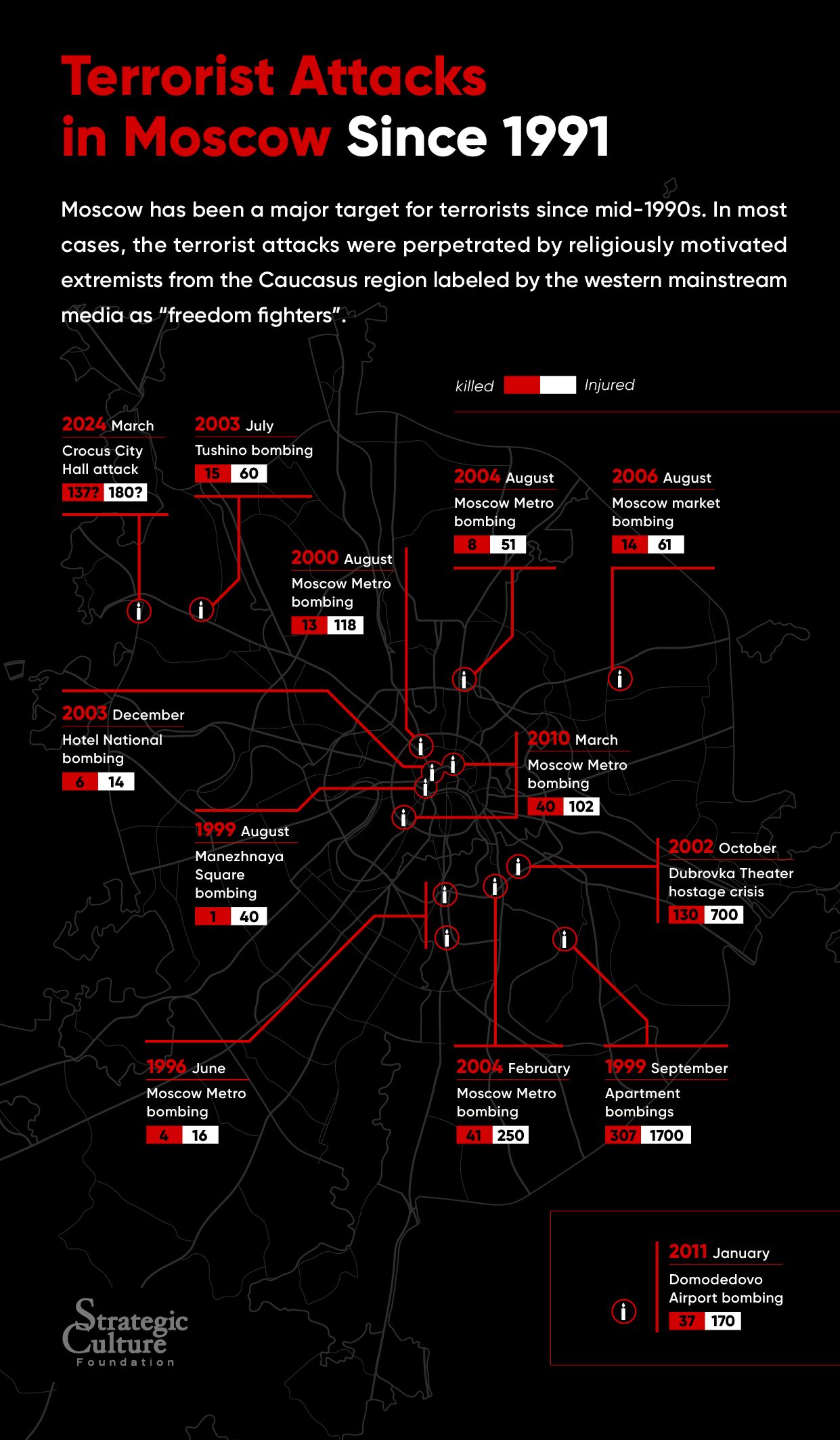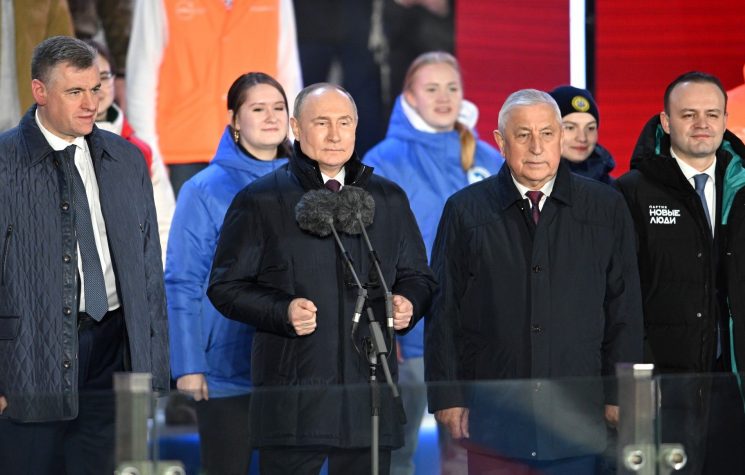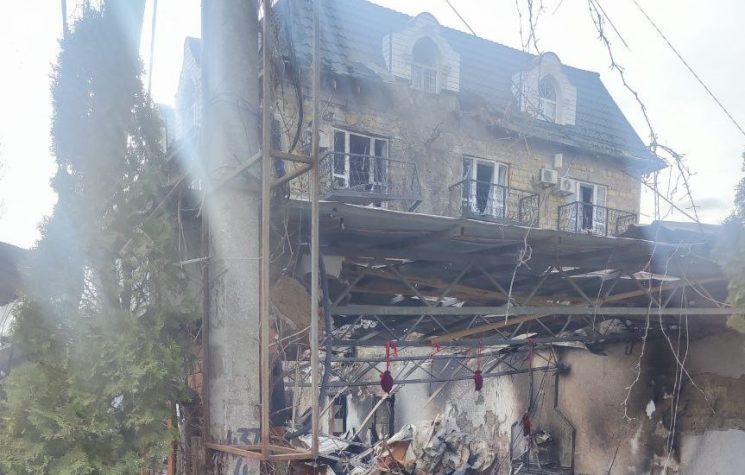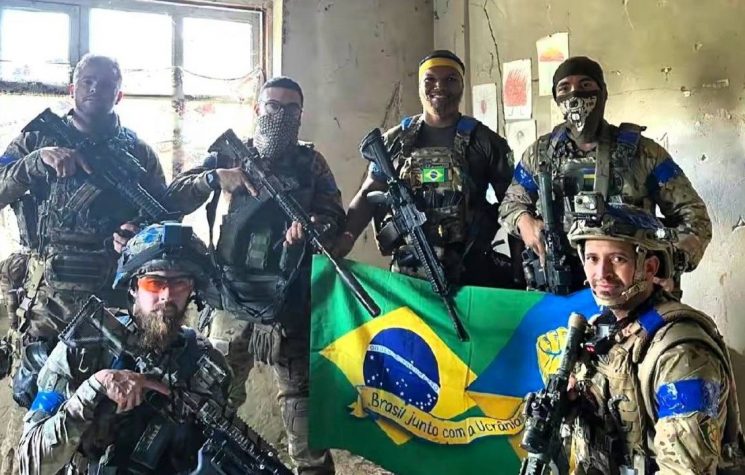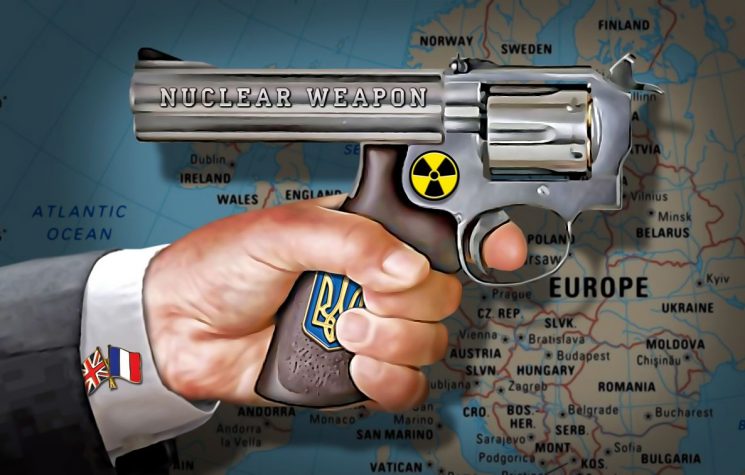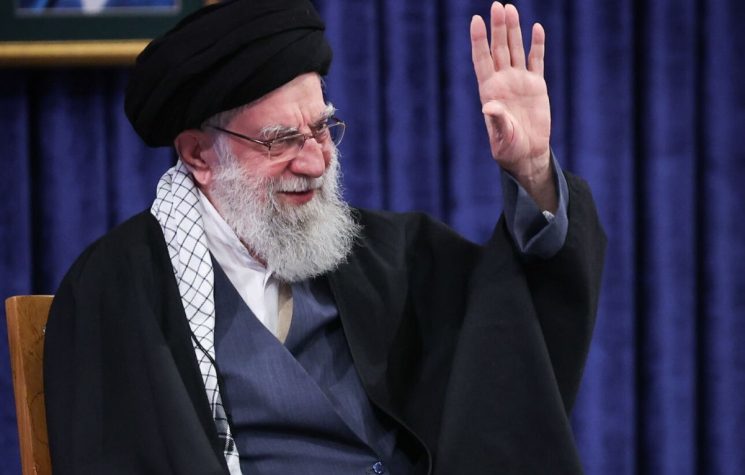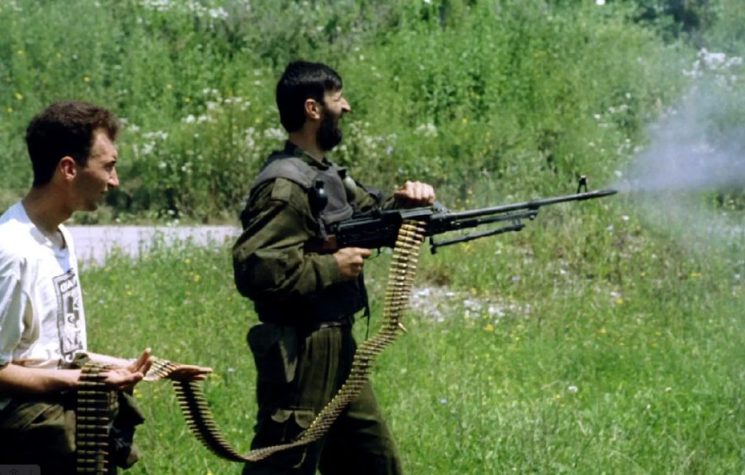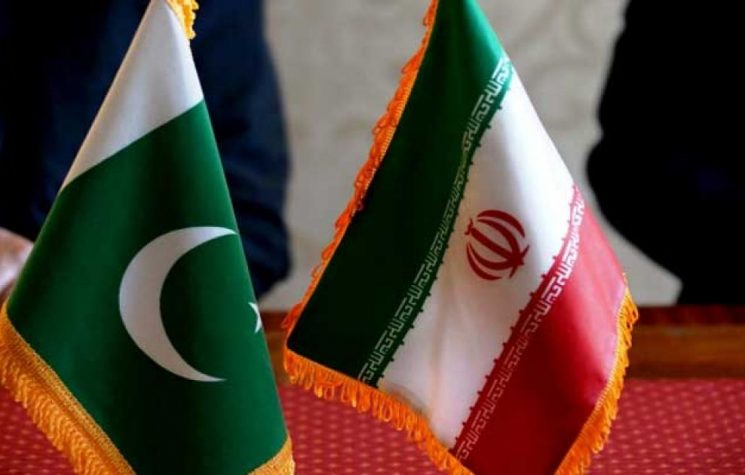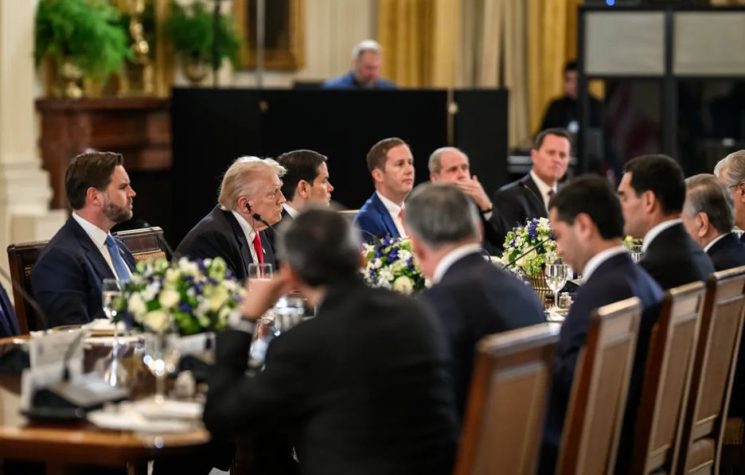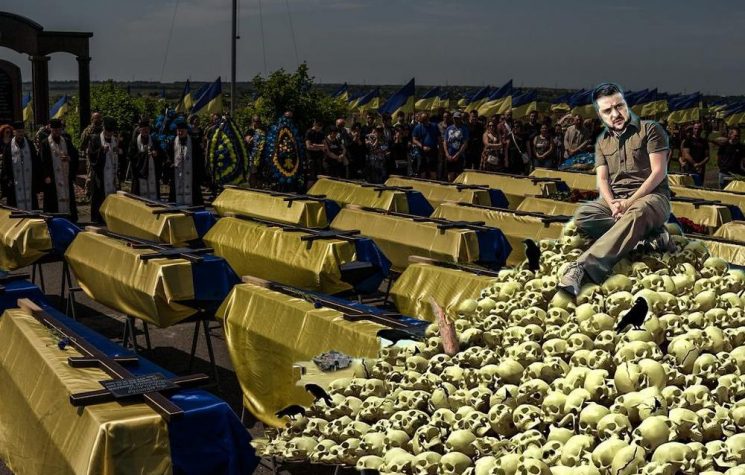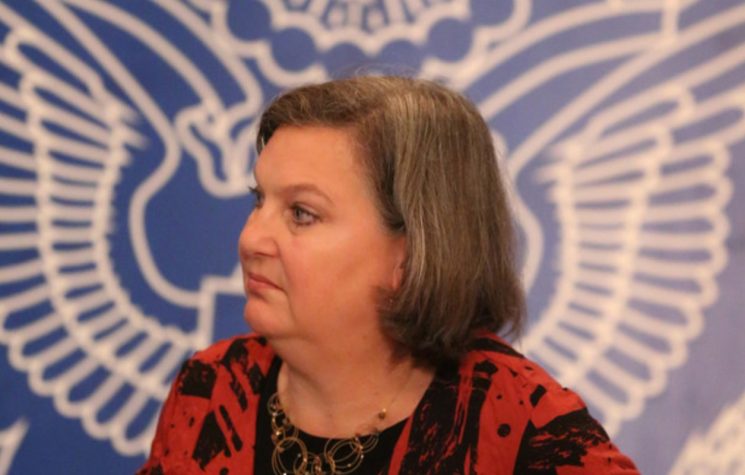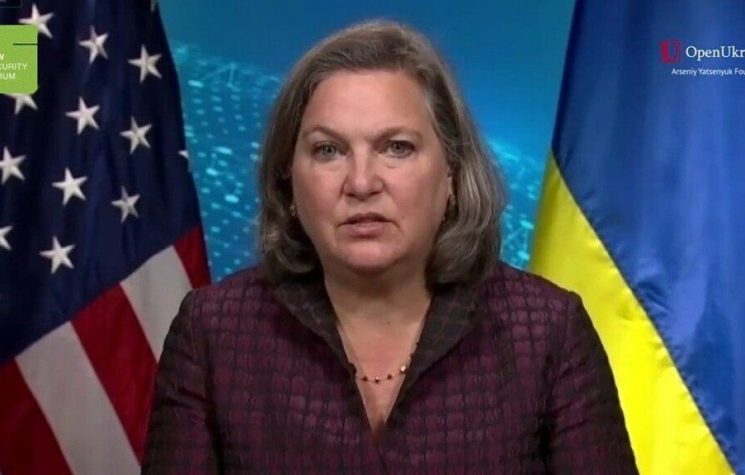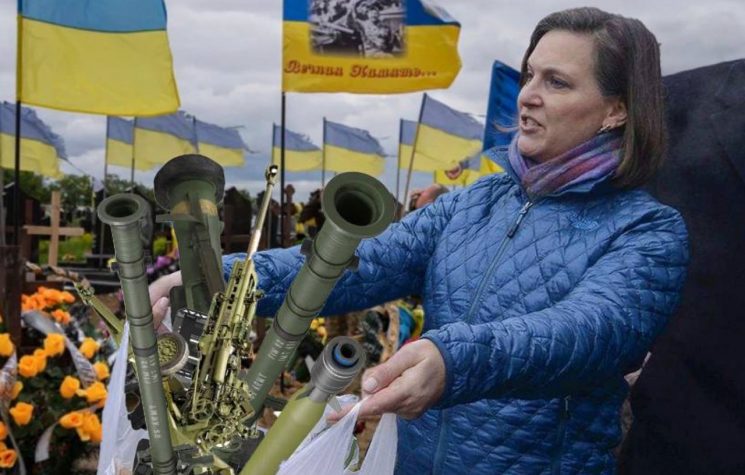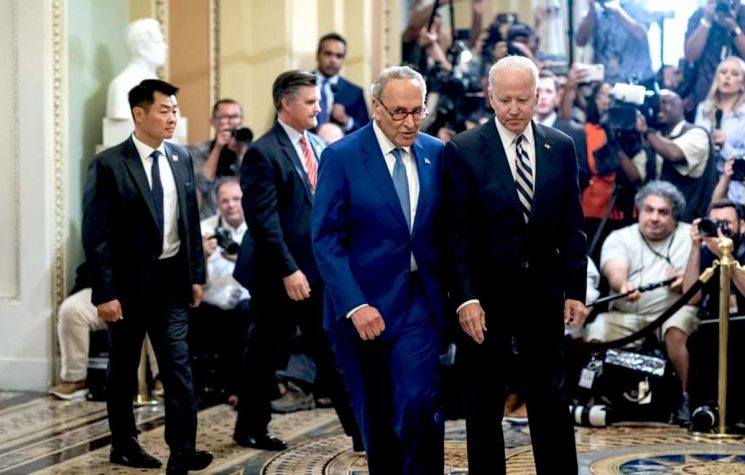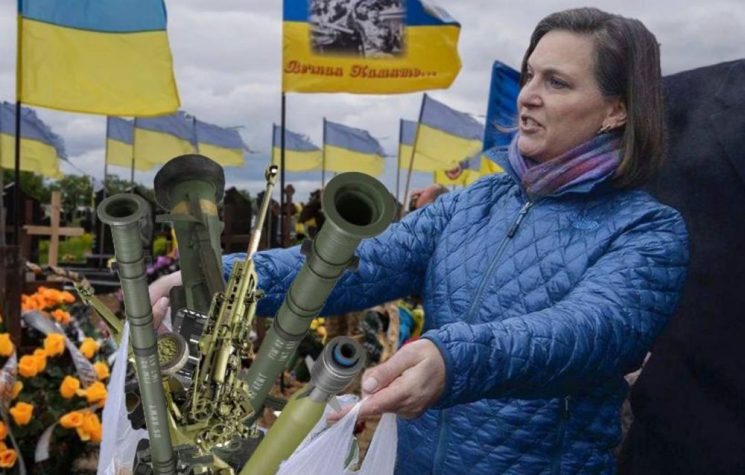The Russian population has handed to the Kremlin total carte blanche to exercise brutal, maximum punishment – whatever and wherever it takes.
❗️Join us on Telegram![]() , Twitter
, Twitter![]() , and VK
, and VK![]() .
.
Contact us: info@strategic-culture.su
Let’s start with the possible chain of events that may have led to the Crocus terror attack. This is as explosive as it gets. Intel sources in Moscow discreetly confirm this is one of the FSB’s prime lines of investigation.
December 4, 2023. Former chairman of the Joint Chiefs of Staff, Gen Mark Milley, only 3 months after his retirement, tells CIA mouthpiece The Washington Post: “There should be no Russian who goes to sleep without wondering if they’re going to get their throat slit in the middle of the night (…) You gotta get back there and create a campaign behind the lines.”
January 4, 2024: In an interview with ABC News, “spy chief” Kyrylo Budanov lays down the road map: strikes “deeper and deeper” into Russia.
January 31: Victoria Nuland travels to Kiev and meets Budanov. Then, in a dodgy press conference at night in the middle of an empty street, she promises “nasty surprises” to Putin: code for asymmetric war.
February 22: Nuland shows up at a Center for Strategic and International Studies (CSIS) event and doubles down on the “nasty surprises” and asymmetric war. That may be interpreted as the definitive signal for Budanov to start deploying dirty ops.
February 25: The New York Times publishes a story about CIA cells in Ukraine: nothing that Russian intel does not already know.
Then, a lull until March 5 – when crucial shadow play may have been in effect. Privileged scenario: Nuland was a key dirty ops plotter alongside the CIA and the Ukrainian GUR (Budanov). Rival Deep State factions got hold of it and maneuvered to “terminate” her one way or another – because Russian intel would have inevitably connected the dots.
Yet Nuland, in fact, is not “retired” yet; she’s still presented as Undersecretary of State for Political Affairs and showed up recently in Rome for a G7-related meeting, although her new job, in theory, seems to be at Columbia University (a Hillary Clinton maneuver).
Meanwhile, the assets for a major “nasty surprise” are already in place, in the dark, and totally off radar. The op cannot be called off.
March 5: Little Blinken formally announces Nuland’s “retirement”.
March 7: At least one Tajik among the four-member terror commando visits the Crocus venue and has his photo taken.
March 7-8 at night: U.S. and British embassies simultaneously announce a possible terror attack on Moscow, telling their nationals to avoid “concerts” and gatherings within the next two days.
March 9: Massively popular Russian patriotic singer Shaman performs at Crocus. That may have been the carefully chosen occasion targeted for the “nasty surprise” – as it falls only a few days before the presidential elections, from March 15 to 17. But security at Crocus was massive, so the op is postponed.
March 22: The Crocus City Hall terror attack.
ISIS-K: the ultimate can of worms
The Budanov connection is betrayed by the modus operandi – similar to previous Ukraine intel terror attacks against Daria Dugina and Vladimir Tatarsky: close reconnaissance for days, even weeks; the hit; and then a dash for the border.
And that brings us to the Tajik connection.
There seem to be holes aplenty in the narrative concocted by the ragged bunch turned mass killers: following an Islamist preacher on Telegram; offered what was later established as a puny 500 thousand rubles (roughly $4,500) for the four of them to shoot random people in a concert hall; sent half of the funds via Telegram; directed to a weapons cache where they find AK-12s and hand grenades.
The videos show that they used the machine guns like pros; shots were accurate, short bursts or single fire; no panic whatsoever; effective use of hand grenades; fleeing the scene in a flash, just melting away, almost in time to catch the “window” that would take them across the border to Ukraine.
All that takes training. And that also applies to facing nasty counter-interrogation. Still, the FSB seems to have broken them all – quite literally.
A potential handler has surfaced, named Abdullo Buriyev. Turkish intel had earlier identified him as a handler for ISIS-K, or Wilayat Khorasan in Afghanistan. One of the members of the Crocus commando told the FSB their “acquaintance” Abdullo helped them to buy the car for the op.
And that leads us to the massive can of worms to end them all: ISIS-K.
The alleged emir of ISIS-K, since 2020, is an Afghan Tajik, Sanaullah Ghafari. He was not killed in Afghanistan in June 2023, as the Americans were spinning: he may be currently holed up in Balochistan in Pakistan.
Yet the real person of interest here is not Tajik Ghafari but Chechen Abdul Hakim al-Shishani, the former leader of the jihadi outfit Ajnad al-Kavkaz (“Soldiers of the Caucasus”), who was fighting against the government in Damascus in Idlib and then escaped to Ukraine because of a crackdown by Hayat Tahrir al-Sham (HTS) – in another one of those classic inter-jihadi squabbles.
Shishani was spotted on the border near Belgorod during the recent attack concocted by Ukrainian intel inside Russia. Call it another vector of the “nasty surprises”.
Shishani had been in Ukraine for over two years and has acquired citizenship. He is in fact the sterling connection between the nasty motley crue Idlib gangs in Syria and GUR in Kiev – as his Chechens worked closely with Jabhat al-Nusra, which was virtually indistinguishable from ISIS.
Shishani, fiercely anti-Assad, anti-Putin and anti-Kadyrov, is the classic “moderate rebel” advertised for years as a “freedom fighter” by the CIA and the Pentagon.
Some of the four hapless Tajiks seem to have followed ideological/religious indoctrination on the internet dispensed by Wilayat Khorasan, or ISIS-K, in a chat room called Rahnamo ba Khuroson.
The indoctrination game happened to be supervised by a Tajik, Salmon Khurosoni. He’s the guy who made the first move to recruit the commando. Khurosoni is arguably a messenger between ISIS-K and the CIA.
The problem is the ISIS-K modus operandi for any attack never features a fistful of dollars: the promise is Paradise via martyrdom. Yet in this case it seems it’s Khurosoni himself who has approved the 500 thousand ruble reward.
After handler Buriyev relayed the instructions, the commando sent the bayat – the ISIS pledge of allegiance – to Khurosoni. Ukraine may not have been their final destination. Another foreign intel connection – not identified by FSB sources – would have sent them to Turkey, and then Afghanistan.
That’s exactly where Khurosoni is to be found. Khurosoni may have been the ideological mastermind of Crocus. But, crucially, he’s not the client.
The Ukrainian love affair with terror gangs
Ukrainian intel, SBU and GUR, have been using the “Islamic” terror galaxy as they please since the first Chechnya war in the mid-1990s. Milley and Nuland of course knew it, as there were serious rifts in the past, for instance, between GUR and the CIA.
Following the symbiosis of any Ukrainian government post-1991 with assorted terror/jihadi outfits, Kiev post-Maidan turbo-charged these connections especially with Idlib gangs, as well as north Caucasus outfits, from the Chechen Shishani to ISIS in Syria and then ISIS-K. GUR routinely aims to recruit ISIS and ISIS-K denizens via online chat rooms. Exactly the modus operandi that led to Crocus.
One “Azan” association, founded in 2017 by Anvar Derkach, a member of the Hizb ut-Tahrir, actually facilitates terrorist life in Ukraine, Tatars from Crimea included – from lodging to juridical assistance.
The FSB investigation is establishing a trail: Crocus was planned by pros – and certainly not by a bunch of low-IQ Tajik dregs. Not by ISIS-K, but by GUR. A classic false flag, with the clueless Tajiks under the impression that they were working for ISIS-K.
The FSB investigation is also unveiling the standard modus operandi of online terror, everywhere. A recruiter focuses on a specific profile; adapts himself to the candidate, especially his – low – IQ; provides him with the minimum necessary for a job; then the candidate/executor become disposable.
Everyone in Russia remembers that during the first attack on the Crimea bridge, the driver of the kamikaze truck was blissfully unaware of what he was carrying,
As for ISIS, everyone seriously following West Asia knows that’s a gigantic diversionist scam, complete with the Americans transferring ISIS operatives from the Al-Tanf base to the eastern Euphrates, and then to Afghanistan after the Hegemon’s humiliating “withdrawal”. Project ISIS-K actually started in 2021, after it became pointless to use ISIS goons imported from Syria to block the relentless progress of the Taliban.
Ace Russian war correspondent Marat Khairullin has added another juicy morsel to this funky salad: he convincingly unveils the MI6 angle in the Crocus City Hall terror attack (in English here, in two parts, posted by “S”).
The FSB is right in the middle of the painstaking process of cracking most, if not all ISIS-K-CIA/MI6 connections. Once it’s all established, there will be hell to pay.
But that won’t be the end of the story. Countless terror networks are not controlled by Western intel – although they will work with Western intel via middlemen, usually Salafist “preachers” who deal with Saudi/Gulf intel agencies.
The case of the CIA flying “black” helicopters to extract jihadists from Syria and drop them in Afghanistan is more like an exception – in terms of direct contact – than the norm. So the FSB and the Kremlin will be very careful when it comes to directly accusing the CIA and MI6 of managing these networks.
But even with plausible deniability, the Crocus investigation seems to be leading exactly to where Moscow wants it: uncovering the crucial middleman. And everything seems to be pointing to Budanov and his goons.
Ramzan Kadyrov dropped an extra clue. He said the Crocus “curators” chose on purpose to instrumentalize elements of an ethnic minority – Tajiks – who barely speak Russian to open up new wounds in a multinational nation where dozens of ethnicities live side by side for centuries.
In the end, it didn’t work. The Russian population has handed to the Kremlin total carte blanche to exercise brutal, maximum punishment – whatever and wherever it takes.






